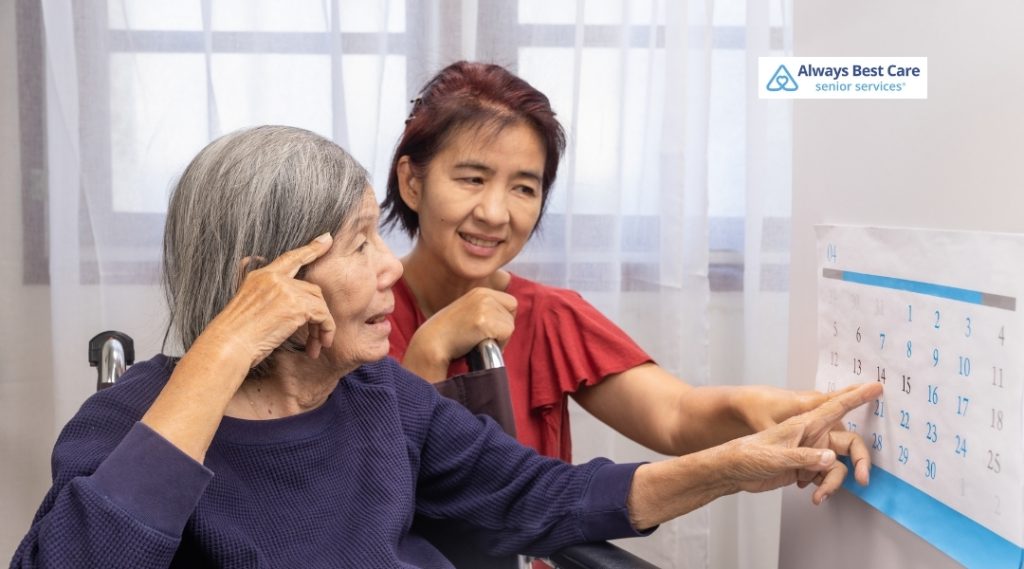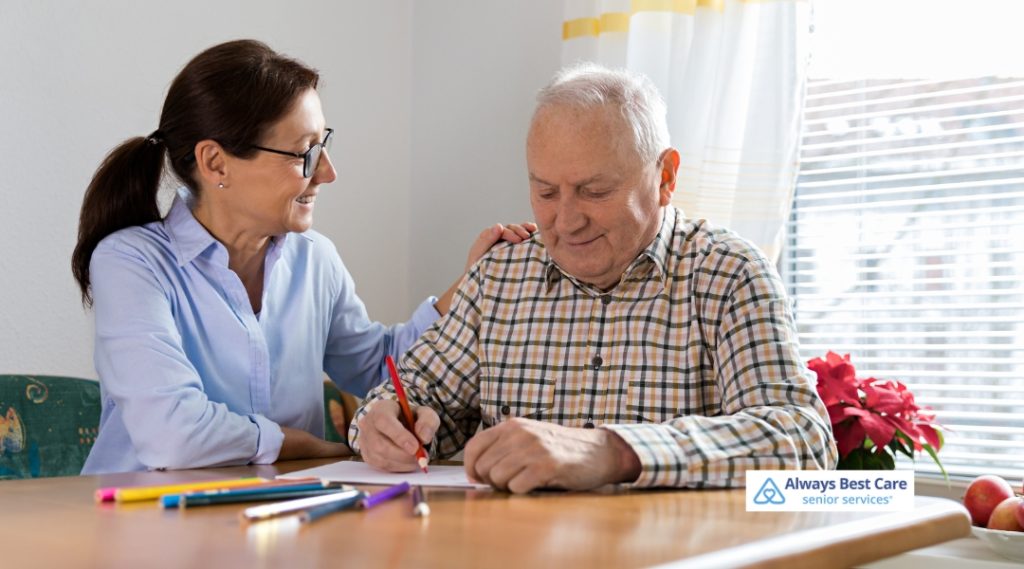When Loved Ones Wander: Understanding Dementia and How to Keep Seniors Safe in Princeton, NJ

Have you ever turned around for just a moment, only to find that your loved one with dementia has slipped out the door?
It’s enough to make your heart skip a beat.
Wandering is one of the most worrisome symptoms of dementia, not only because it’s unpredictable but also because it poses real dangers.
At Always Best Care of Princeton, we know firsthand how tough this can be on families, so let’s break down what causes wandering and what we can all do about it.
What you will learn:
- The underlying causes and warning signs of dementia-related wandering, and how to recognize when a loved one may be at risk.
- Simple, practical strategies for creating a safer home environment and reducing the chances of wandering, including technology solutions and community involvement.
- The role and benefits of memory care communities in providing specialized support, security, and a higher quality of life for individuals living with dementia.
Table of Contents
Why Do People with Dementia Wander?
Wandering isn’t simply about getting lost; there’s usually more bubbling beneath the surface. Cognitive changes caused by Alzheimer’s or other forms of dementia often mess with memory, judgment, and even time perception. Some common reasons folks might wander include:
- Searching for something or someone they believe is missing.
- Trying to follow an old routine, like heading off to work.
- Feeling restless or bored when there isn’t enough stimulation.
- Anxiety triggered by noisy or unfamiliar environments.
- Disorientation in time, thinking it’s another day or year entirely.

Spotting the Warning Signs of Wandering
Wondering if your loved one might be at risk? Here are some red flags:
- They keep trying doors or windows as if looking for an exit.
- They talk about needing to “go home,” even when already there.
- Anxiety ramps up during outings or in unfamiliar places.
- They get confused about where they are, even inside their own house.
- You notice repetitive pacing near doors.
How Can We Reduce the Risk of Wandering?
Keeping someone safe doesn’t have to mean living in a constant state of high alert 24/7. Here are some tried-and-tested ways Always Best Care helps local families reduce wandering risks:
Secure the Home Environment
Little changes add up big-time:
- Install door alarms; they’ll alert you right away if someone heads out unexpectedly.
- Add motion sensors, pressure mats near exits, or locks placed higher up where they’re harder for seniors with dementia to reach.
- Consider GPS tracking devices tucked into shoes, watches, clothing; you’d be surprised how much peace those gadgets bring caregivers these days!

Stick to a Routine
Plan regular activities each day, including gentle exercise and creative projects, to reduce boredom-driven restlessness.
Limit Triggers and Overstimulation
- Keep loud noises and clutter at bay; opt for calm spaces whenever possible.
- Label rooms clearly using pictures and colors as cues; it really helps cut through confusion!
Provide Companionship and Engagement
Loneliness often sparks that urge just “to go somewhere.” Filling days with friendly conversation or hobbies (e.g., gardening) can make all the difference.
Inform Neighbors and Prepare for Emergencies
Get trusted neighbors on board; they’re extra eyes in case anything happens.
Keep recent photos and medical information handy, in case you need to quickly locate someone who has wandered.
Is Memory Care the Next Step?
Sometimes, no matter how hard we try, home safety becomes too much for us and our loved ones to handle. That doesn’t mean giving up; sometimes, it’s simply time for specialized support tailored exactly toward those living with memory loss.
Memory care communities offered by Always Best Care of Princeton feature:
- Secure entryways and exits designed specifically against wandering risks.
- Round-the-clock trained staff always ready if help is needed.
- Therapeutic programs created just for memory stimulation.
- Personalized plans focused on dignity and quality of daily life!
Choosing this path means choosing safety and a better everyday experience; not less independence but more protection when it’s needed most.

Frequently Asked Questions about Dementia Wandering & Safety
Q: What makes people with dementia want to leave home suddenly?
A: Changes in brain function cause confusion; sometimes they’re searching for comfort from past routines, or reacting instinctively due to anxiety/boredom.
Q: Are GPS trackers really helpful?
A: Absolutely! Devices worn as watches, shoes, or clothing tags have made finding missing seniors faster than ever before, giving family members peace of mind they didn’t know was possible until now.
Q: How do I know when it’s no longer safe at home?
A: If managing constant supervision feels overwhelming, or if dangerous situations keep cropping up, it may be time for a safer setting, such as dedicated memory care offered locally by us here at Always Best Care.
We’re in This Together
Watching over a loved one who might wander feels daunting, but you’re not alone!
From smart technology solutions through community partnerships, right down to friendly chats every morning, we work alongside you every step.
At Always Best Care, supporting both seniors and their families isn’t just our job; it’s our privilege.
Contact Always Best Care of Princeton at (609) 455-2886 to learn more and schedule your free consultation.





